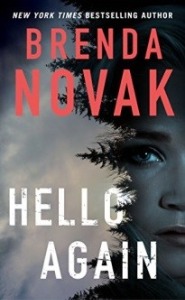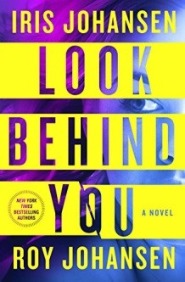Thinking About Genre
Updated: Feb 5, 2021

Do you remember opening high school essays with a definition? It worked back then so why not now? Let’s start with that.
Genre refers to a kind or category of literary work (primarily fiction), music, art, etc. Each genre is typically defined by a certain approach to form and content. We’re talking strictly about genres within storytelling here.
To the comment about form and content, I would add reader expectations, which are created within particular genres—and in turn, help determine which conventions continue or change or simply disappear.
Let’s look at a number of genres within fiction that have been around for years, often centuries, in one way or another, and that survive to this day.
I’ll begin with my personal belief that—despite genre fiction’s reputation for restrictive or “formula” storytelling—there is real flexibility within many genres (and perhaps in romance more than most). Romance fiction, for instance, often borrows elements from other types of fiction, including mystery and suspense, westerns, science fiction, fantasy, paranormal and so on. The reverse, of course, is also true.
As well, the boundaries between genre fiction and so-called literary fiction are much less definite than is often assumed. And that back-and-forth movement across boundaries can come from either (or any) direction.
Where genres intersect, there may be one that’s primary—but the degree of primacy can vary. For instance, we have romance novels that also partake of the elements of, say, mystery and suspense; some examples are titles by Brenda Novak, Iris Johansen, Geri Krotow, Kate James, Tara Taylor Quinn.
There are also romances that include fantasy and science fiction.
Still, each individual genre has its own parameters and properties—often focused on plot, conflict and character. The world an author devises to contain the story is equally important and typically draws some of its qualities from the genre itself.
The reader has learned to expect, even depend on, the details of that world; it’s part of the satisfaction of genre fiction.
The world of a western novel is pretty straightforward, while the world of a romance novel has quite a bit of latitude, but usually involves some kind of community, often domestic; family is frequently a significant part. And a historical romance requires the convincing recreation of a time and place; Linda Cardillo, Diana Gabaldon, Mary Balogh and Julie Garwood, among many skilled writers, are all expert at this.
Romance can also be combined with the paranormal; one well-known exemplar is Heather Graham, who also incorporates suspense in many of her books. Then there’s the romance novel that’s also a western; this category includes books by Ann DeFee, Linda Lael Miller, Cathy McDavid and Linda Warren, to name a few.
These are all examples of what’s sometimes referred to as multi-genre fiction—the blending of various genres.

What distinguishes one genre from another—besides the specific world that each requires? Conflict. The particular kind of conflict that takes the story from obstacle to resolution. To put it more subtly, perhaps, I’d like to refer to an article, “The Guilty Vicarage,” published by the poet W.H. Auden in Harper’s Magazine in 1948. He says—first—that “the reading of detective stories is an addiction like tobacco or alcohol.” (Okay, W.H., I can enjoy a glass of wine with my Louise Penny or Sue Grafton, too!)
But to the point I want to make: he says (and this is one of many interesting observations), “there is a dialectic of innocence and guilt” in the detective novel.
Let’s consider the essential dialectic—the argument or tension or conflict, if you prefer—in other types of genre fiction.
Straightforward mystery novels can (like suspense, romantic suspense and thrillers) be
distinguished from Auden’s detective fiction in various ways. I’d say the obvious
dialectic there is between crime and justice.
In suspense novels we could describe it as a dialectic between fear and resolution (or
fear and deliverance from fear).
In romance fiction, I’d suggest it’s between loss and love. That may be why “second
chance” romances have always been so popular. We’re talking about a loss of some kind
—something missing in the heroine’s life and the hero’s, either from the very beginning
of the story or soon after. That missing quality is, of course, love, the type of love that
gives life even greater significance. Once love is established, it’s threatened by an
obstacle, either external or internal or both. Then that obstacle is overcome and love
replaces loss.
Science fiction, according to Alex Eykelhof (brother and tech supreme), can involve a
people vs. the machine dialectic, although SF isn’t usually about technology per se, but
does include it in a vital role. He also points out that “The gap between what is possible
in the world of science fact and what is plausible in the world of science fiction is
shrinking both in terms of latency (how long since it was first written about and reliably
accomplished) and the impact on our world (the gap between how the story is written
and how real evolves in the world. Stories are always about people or people-like things
—robots, aliens, you name it.”
A few more examples: fantasy could be said to involve a dialectic between an extraordinary world and the ordinary one around us.
In westerns, it’s between the wild and the tamed (another version of that could be
described as country vs. town).
Horror, which I don’t often read—I scare too easily—is, I guess, about the dialectic
between a threat to life and the ultimate vanquishing of that threat. Or so we hope…
Let me add again that when it comes to genres, almost endless combinations and variations are possible.
What do all genres have in common? Other than the fact that there are certain parameters defining each one (and, as noted, I don’t mean formulas!)
The role—and appeal—of genre fiction is, to put it simply, twofold: To entertain and, ultimately, to reassure.
Entertainment I’ll get to in a moment. Reassurance comes from the fact that genre fiction, of whatever kind, typically promises either a return to rightness, to order, to fairness and justice, to love and the pre-eminence of family and community…or the discovery, the emergence, of those important values and realities.
And entertainment… Well, it’s become a mistrusted enterprise, a suspect activity. Let me share one of my all-time favorite quotes. It’s from an article by Anthony Burgess in the New York Times Book Review, January 4, 1987. That’s more than thirty years ago! But it’s as true now as it was then. In an article about Arthur Conan Doyle, Burgess said there’s a difference, a division, “between what is subtle or ambiguous enough to be studied and what is no more than a good read.” [In this society, this culture] “to be a mere entertainer is not enough. And yet to entertain is far more difficult than to enlighten.”
Our culture fetishizes entertainment—and yet “mere” entertainment is considered cheap, trivial, ephemeral, superficial, and our craving for it is therefore shameful.

Michael Chabon’s brilliant book of essays, Maps and Legends—Reading and Writing Along the Borderlands—addresses this same concern. As he points out, “Entertainment has a bad name. Serious people learn to mistrust and even revile it.” But then he says, “maybe those intelligent and serious people are wrong.”

Time for another definition: entertainment. Francis Bacon first used it in 1626 to refer to amusement. And for most people, “amusement” involves escape. Escape from our ordinary lives, our mundane realities, our troubles and fears. But storytelling has always played this role: removing us from our lives…and, ultimately, bringing us back to them, hopeful and reassured.
The escape offered by traditional storytelling and by all genre fiction is through the lives of others. It’s through those fictional characters, who must become real for the reader, that we experience the story. That we share it. Maybe the main characters remind readers of themselves, maybe they don’t (and this is possible even if your characters are aliens or live a life entirely different from the lives of most readers). But the writer must give the reader a way to connect with the characters, make them believable, ensure that they’re knowable.
With genre fiction of all kinds, that connection is vital, regardless of how “plot-driven” the story is. Even if your reader is critical of some of your protagonists’ actions or decisions, he or she probably won’t pass judgement on them. The reader wants and needs these characters to succeed, to reach their destination, to find safety or love or whatever the missing element in their lives.
This is where identification comes in, too. Typically, your reader will (and wants to) identify with your protagonist/s, who lead them into and through the story. With the obvious exception of the unreliable narrator so prevalent in the “girl” stories (The Girl on the Train and Gone Girl, to name two famously successful examples), the relationship between protagonist and reader in genre fiction—and between author and reader—is usually unselfconscious. Without irony. Most deceptions or confusions, in mystery, fantasy and suspense, for instance, are experienced by the character and the reader.
Returning to the Burgess comment… “Enlightenment” and “entertainment” sound like opposites. But they’re not. Readers of romance or other genre fiction learn from their entertainment (and might well learn about any number of interesting things—from ranching, to the military, to police work, to poisons and culinary exploits (not necessarily connected!) and who knows what else. Readers also have an opportunity to practice and experience empathy. To grasp the feelings of others. If I can quote myself (from a long-ago speech—forgive the indulgence): “Readers not only gain acceptance, validation and understanding of their own emotions…but they also expand their emotional repertoires, gaining insight into the feelings of others.” Isn’t that one of the ultimate forms of enlightenment?

And Michael Chabon again: “Entertainment remains the only sure means we have of bridging, or at least feeling as if we have bridged, the gulf of consciousness that separates each of us from everybody else.”
So, genre fiction is often about action and agency, about taking action as much as it is about being acted upon.
Ideally it’s the perfect blend of character and conflict/plot. (And style, the author’s unique way of expressing the story’s world and the perspective of its characters.) Yes, every kind of genre comes with parameters and expectations—reader expectations. But to make that story come alive requires characters who are alive to the author…and the reader. And that’s when entertainment is the most meaningful.
About the Author
PAULA EYKELHOF is a former (retired) Executive Editor at Harlequin Books (now a division of Harper Collins). She was with the company for more than 30 years.
Paula worked with a number of New York Times and USA Today bestselling authors. She was responsible for various series programs (including Romance, Superromance, American Romance and Everlasting), as well as working on single-title imprints, principally MIRA and HQN.
She gave many workshops and speeches through the years and has also written a number of blogs on writing-related issues, most recently for Bellastoria Press. She has also advised many aspiring authors.
Paula is now working as a freelance editor and writer.























Comments